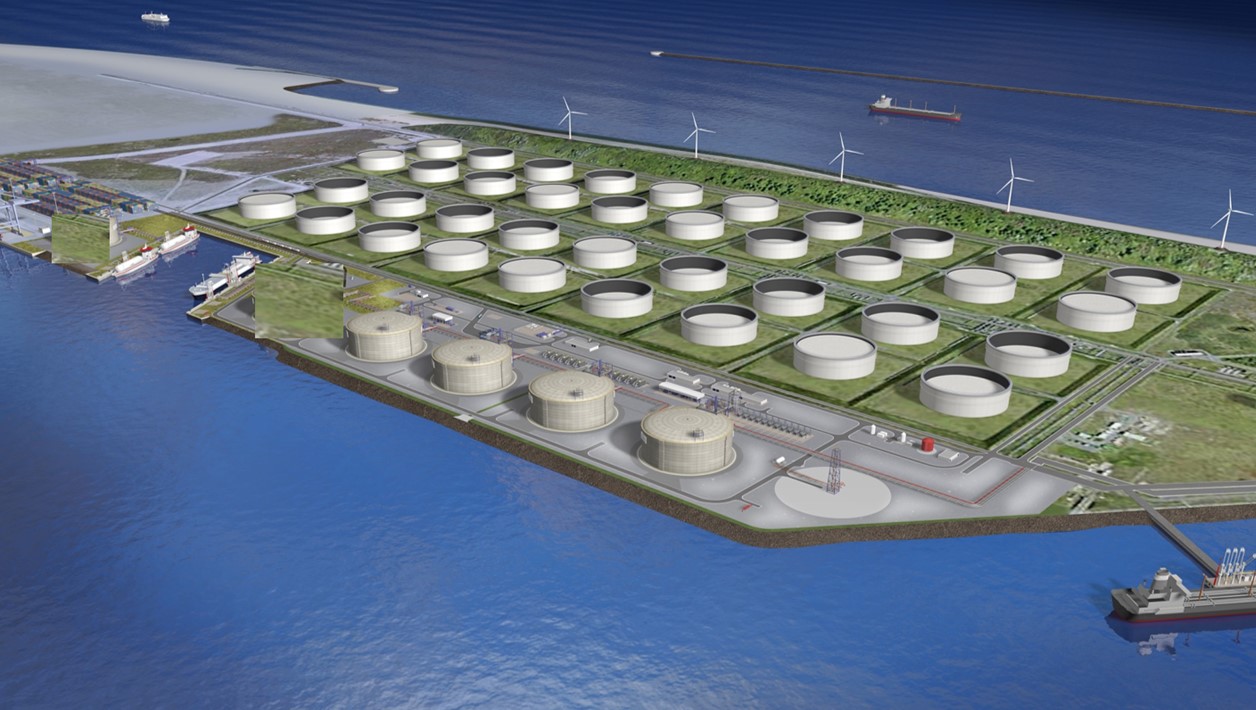Gasunie and Vopak are planning to take a final investment decision to build the fourth storage tank at their Gate LNG terminal in the port of Rotterdam by September 1 this year.
Gate’s commercial manager, Stefaan Adriaens, told LNG Prime on Wednesday that the LNG terminal operator expects the fourth tank to start operations on October 1, 2026.
Launched in September 2011, the terminal has a nameplate capacity of 12 Bcm or 8.8 mtpa of LNG, three LNG storage tanks with a capacity of 540,000 cbm, and three truck loading bays.
Following modifications, Gate managed to add 4 bcm of capacity on an interruptible basis, available to users already having a position in Gate.
Gate’s users include Shell, Uniper, OMV, and Glencore.
Open season completed
In September last year, Gate received a permit to add the fourth tank and boost regasification capacity up to 20 Bcm per year.
During the same month, Gate launched a non-binding open season to gauge market interest in the additional 4 Bcm per year of regasification capacity.
This was followed by a binding season which wrapped up last Friday, according to Adriaens.
Adriaens said that more details regarding the binding season would be announced later this year.
Earlier this year, he said that the LNG terminal received a record number of LNG cargoes last year on the back of high demand and a surge in US deliveries.
Gate unloaded a total of 183 LNG cargoes, mainly from large LNG carriers, while the facility loaded 84 cargoes, mainly to small vessels.
This compares to 113 unloads and 131 reloads in 2021, meaning that Gate unloaded 70 more vessels last year.
Adriaens said that Gate’s 2022 annual utilization rate was at 120 percent last year, or 14,39 Bcm on a 12 Bcm nameplate capacity.
Two Dutch LNG terminals
Besides Gate, the Netherlands now also has its first FSRU-based facility in the port of Eemshaven.
EemsEnergyTerminal, a unit of Gate’s shareholder Gasunie, started delivering regasified LNG to the Dutch grid in a record time in September 2022.
The terminal features two chartered FSRUs, including the 26,000-cbm barge-based FSRU Eemshaven LNG and the 170,000-cbm Energos Igloo.
It has a capacity of 8 billion cubic meters per year and supplies natural gas to capacity holders Shell, Czech utility CEZ, and Engie.
Gasunie recently completed all the planned work at its LNG hub in Eemshaven.
The firm is working to expand the capacity to 9 bcm by the end of this year, and then to grow it to 10 bcm, mainly based on technical optimization.

